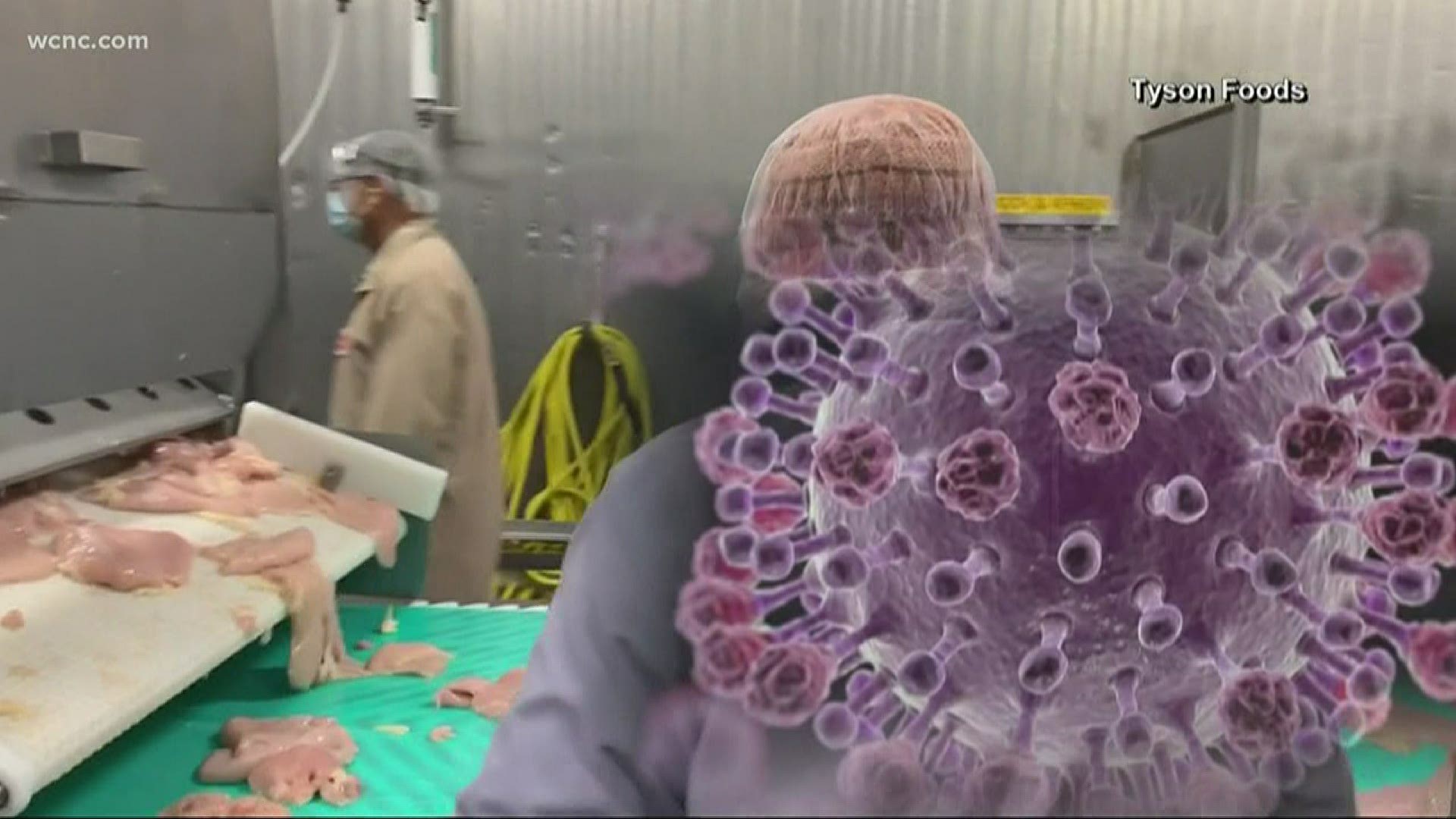CHARLOTTE, N.C. — There's been a lot of concern this week about the food supply. The North Carolina Agriculture Commissioner insisting there is not a shortage of meat right now, but there's a definite disruption in the supply chain, all the way from the farmers to consumers.
Tuesday, President Trump took executive action ordering meat processing plants across the country to stay open amid the coronavirus pandemic. It's meant to prevent a long-term meat shortage from happening.
More than a dozen meat processing plants in the country have been forced to close because of coronavirus outbreaks and as a result, there could be less meat on the shelves in grocery stores.
Workers in processing plants can’t always be spread out without impacting productivity. Some workers in North Carolina say they don't feel safe on the job.
"I just really want it to be known that they got to get out of that plant. Them people got to get out of that plant,” warns a woman who says she caught COVID working inside a North Carolina poultry factory.
She spoke anonymously to NBC-affiliate WRAL and says her coworker at the Pilgrim's Pride Poultry Plant tested positive for coronavirus but kept working.
Pilgrim's Pride says they do temperature checks and require workers to wear face masks.
Meat processing plants across the country have become hot spots and many have been forced to close. That’s causing a domino effect in the food supply chain.
North Carolina is one of the top meat processors in the country but so far no factories have closed.
"We're currently monitoring several plants where employees have tested positive for COVID-19. Strike teams, consisting of epidemiologists from the North Carolina Division of Public Health, the North Carolina National Guard and local health departments have been doing mitigation measures,” says Mike Sprayberry, the director of North Carolina Emergency Management.
The City of Charlotte’s Emergency Management Department says the food supply is one of their top priorities and they’ve been keeping a close eye on it.
A state agriculture commissioner, Steve Troxler, says there’s not a shortage of meat right now but there has been a disruption getting it to consumers. He says the President’s executive order will help.
“As time goes on with this, I do believe there will be a more abundant supply of protein not just in North Carolina, but across the nation,” Troxler said.
Farmers are hurting as a result of processing plant closures, many have nowhere to send their animals.
“We can see the euthanization of some of these animals at the farm level, which means the farmer himself will not be able to make a living,” Troxler said.
He held a press conference along with the President of the N.C. Farm Bureau, Shawn Harding, Wednesday afternoon. They say a top priority will be ensuring workers at the processing plants are confident they are safe. They’re working to ensure they all have proper protective equipment while on the job.
Consumers may see a rise in the price of meats, something experts say will only go up more if people try and hoard meat products.
MORE ON WCNC CHARLOTTE:

